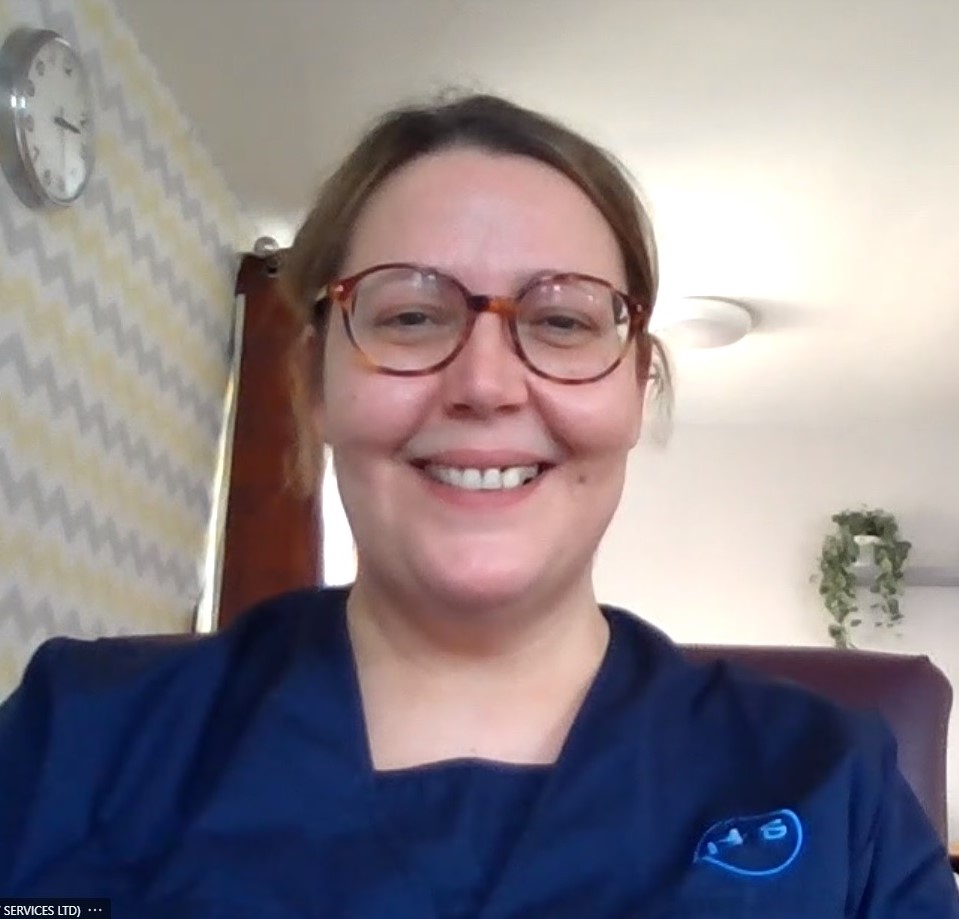
From care homes to Dementia Cafés – how PCN Dietitians are preventing ill-health

Did you know that as you get older or frail, it can actually be healthier to eat high calorie foods like pies, cakes and chips?
Since the autumn of 2020, Emily Fowkes has been a Dietitian for Nottingham West. A member of the PICS Enhanced Health in Care Homes team, she works within a specialist team commissioned by the Primary Care Network and co-designed with PICS. She explains:
“What constitutes healthy eating and drinking changes for us as we get older, especially if we’re frail, ill, have problems with swallowing or are living with neurological diseases like dementia. We can forget to eat and drink, our sense of taste changes, our medicines might complicate our digestion or put us off our food, or we might not be able to chew and swallow like we used to.
“It’s not well known that once an older person or someone with chronic or complex conditions starts to lose weight, it is very difficult for them to put it back on. They risk becoming malnourished, which can exacerbate frailty and ill health. However, if their bodies get the nutrition they need, the benefits are:
- better skin hydration and integrity, which is more comfortable for the patient and help to reduce the risk of pressure sores;
- stronger immune systems, which helps us all stay well and manage other conditions more successfully;
- stronger muscle mass, which enables greater mobility and independence; and
- improved mood, better wellbeing and feeling in more control.
“My job is to intervene early, before weight and ill-health caused by poor diet becomes a problem for someone. My care prevents decline of health, promotes wellbeing and brings comfort to residents and patients. Because I don’t have minimum referral criteria, I have the scope and freedom to work proactively with patients, GPs, nurses, carers and professional care staff. I’ve seen in my previous work how much care homes need this sort of specialist support, so I feel very happy to be able to help them with that.
“I join clinicians with their weekly care home rounds and I conduct assessments and reviews of residents. I have produced a Nutrition and Hydration Care Home Pack which has been sent to all Nottingham West care homes and includes advice, recipes and guidance, supporting them to manage malnutrition successfully.
“I’ve reached out to local speech and learning therapists and community dietitians to explain how I work and share the guidance I’m producing for them to sign off. Speech and language therapists will work with people who have difficulty swallowing; they advise on which consistency of diet and fluids is safe for a resident. I can then offer further support within these recommendations.”
Emily recently adapted training designed for other healthcare professionals and delivered this to people living with dementia and their carers via Zoom. An appropriate diet helps keep people stronger and independent which enables them to live at home for longer and reduces their health needs with their GP or local hospital. She says: “Many carers haven’t cared for someone before; they’re looking after their loved ones with little or no experience or professional training. There is a lot to take in for them and very often, diet and nutrition continues as it always has and reflects what the rest of the household consumes.
“I think it’s really important to help these families and carers with practical advice and some specialist insight so that they can make changes to their diet. They can help prevent weight loss, malnutrition and associated health consequences such as a weakened immune system, increased risk of falls and skin breakdown, decreased mobility and low mood. The Dementia Café’ session was really well received with attendees reporting that they learnt new information and felt more confident supporting their relative now.”
Dr Paul Scullard, GP and a Clinical Director for Nottingham West Primary Care Network, said: “I had attended an amazing tutorial Emily did for our care home clinicians, where she explained the effect of poor nutrition in dementia and the elderly, and shared some simple strategies that can be put in place to support them. We were all surprised to learn that your taste preferences can change when you have dementia. On the back of this we have made new links with local support groups and she is now doing educational sessions for patients and their carers in the community. This has been a great piece of work and we are looking at rolling out more widely in the future.”